Planning, sociology faculty lead students in summer NSF program
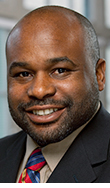
John Cooper
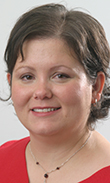
Shannon Van Zandt
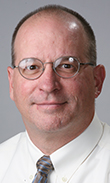
walter peacock
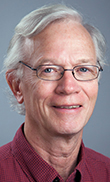
Philip Berke
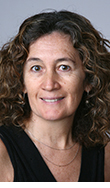
Cecilia Giusti
Undergraduate students interested in careers as planning or sociology researchers sharpened their research skills in summer 2015 with help from Texas A&M faculty during a 6-week [Research Experience for Undergraduates] (https://www.nsf.gov/crssprgm/reu/) program, a National Science Foundation initiative.
During the May 30 – July 12 program, funded with a $270,000 NSF grant, 10 students, nine from Texas universities and one from California, investigated the patterns, nature, causes, and consequences of income inequality and social vulnerability by participating in urban planning and sociology professors’ research projects.
The program, co-hosted by Texas A&M’s departments of [landscape architecture and urban planning] (http://laup.arch.tamu.edu) and [sociology] (http://sociology.tamu.edu/html/home.html) . also included one-on-one mentoring from faculty and advanced doctoral students, classroom instruction and field trips to sites associated with faculty projects.
“The research topics covered in the REU program are important because social disparity and vulnerability have been rising steadily for decades and in some areas of the U.S. stand at extreme levels not seen since the ‘Gilded Age’ of the late nineteenth century,” said Walter Gillis Peacock, professor of urban planning and one of the program’s nine faculty members.
One group of students, led by Peacock, investigated how variances in Hurricane Ike’s impact in Galveston neighborhoods was based on racial/ethnic and income differences and the availability of recovery assistance.
Students also traveled to Galveston to see these differences and learned about the project’s data collection procedures.
Another group of students led by Philip Berke, professor of urban planning, analyzed data from two of his current NSF-funded studies examining planning activities in the Houston-Galveston area.
They investigated the level of minority participation in the planning process, whether minorities have an effective voice in shaping in the planning process and the consequences of minority vulnerability.
Students led by John Cooper, associate professor of urban planning, investigated whether inclusion of minority populations in recovery planning ensures more equitable recovery patterns, the factors affecting minority involvement in hazard mitigation planning efforts, and what kinds of planning techniques better ensure minority participation in planning processes.
A group of students led by Shannon Van Zandt, associate professor of urban planning, assessed whether federal housing voucher programs have negative effects on neighborhood and housing quality by creating concentrated areas of poverty and whether governments’ commitment to fair housing principles varies according to the demographics of the governing entites’ respective jurisdictions.
They also traveled with Van Zandt to the Rio Grande Valley and San Antonio to see firsthand the effects of governments’ housing policies and actions.
Cecilia Giusti, associate professor of urban planning, served as a program mentor and project administrator.
Students’ participation in the program will continue in October, when they present their findings at the Southern Demographic Association’s annual [meeting] (http://sda-demography.org/sda_2015_meeting.php) in San Antonio and at the Association of Collegiate Schools of Planning [conference] (http://www.acsp.org/conferences/annual_conference) in Houston.
The students’ efforts took place in one of the few REU programs focusing on the social sciences. They were provided funds for room and board at Texas A&M, travel to and from their home towns to College Station and additional travel costs for research field trips and conferences.
Program organizers encouraged applications from students in underrepresented groups, resulting in a cohort that included five Hispanic and one African-American student. Nine members of the group were female.
Program faculty also included included Texas A&M sociology faculty members Mary Campbell, Mark Fossett, Verna Keith, Dudley Poston and Patrick Rubio Goldsmith.
Tags
- academics
- building a better texas
- diversity
- events
- feature
- hazard reduction & recovery
- housing & urban development
- interdisciplinary
- landscape architecture & urban planning
- outreach
- partnerships
- planning
- sustainability
- undergraduate work
Related Posts

Land use planning expert returns to Texas A&M faculty
LAUP students help remake housing project in Beaumont

New CHUD director shares vision for center's expansion

Student-built tiny homes destined to house homeless
Follow Us
Facebook Twitter Vimeo Youtube Flickr RSS
Recent Posts

Planning prof heads study of disaster housing aid

A message from the dean

Former student remembered as expert planner

Leading educator named new head of Architecture Dept.









_thumbnail_small.png)
